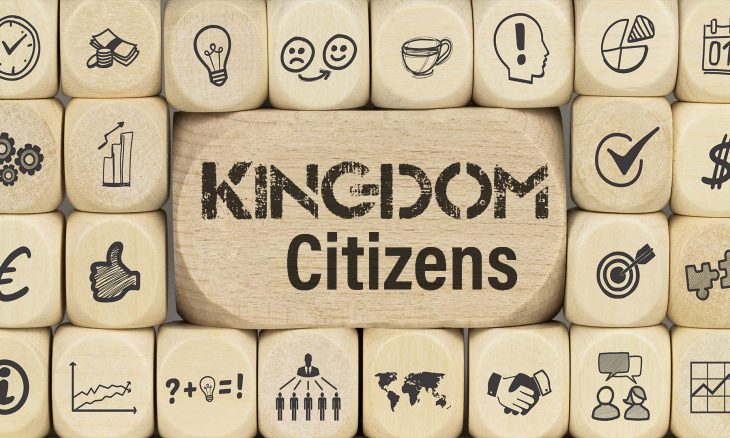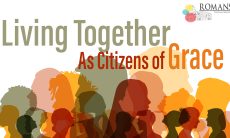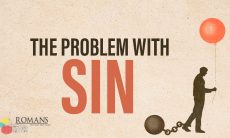In Oatlands, Sydney, Danny and Leila Abdallah faced a parent’s worst nightmare: a drunk and drugged driver struck their three children and their niece as they walked to buy ice cream.
“The next day, the minister visited us, and I remember him saying, “However you conduct yourselves now, the world will follow. Your family, your community—the world will follow your lead.” From that point on, we decided to honour God in our grief.”
A few days later, Leila returned to the scene of the accident and prayed. She went to the spot where one of their bodies had laid and prayed.
A news reporter approached her and asked her if she wanted to talk, and eventually, with some coaxing, she began talking about our kids. Then she said something no one expected. She said, “I don’t hate the driver, in my heart. I think I forgive him, but I want the courts to be fair.” The minister was right – the world was watching us, and Leila’s words stunned the world. From the Middle East to America to Europe – we got messages from across the world from people who were amazed by Leila’s words.
From the outside looking in, what Christ did on the cross seems strange, maybe incredible. But now, after experiencing this grief, I understand so much more. Christ’s forgiveness on the cross is the only reason I can move towards others with a spirit of forgiveness. We know that resurrection accompanies death. Through the horror of death, Christ has resurrected a forgiveness movement. We still feel pain and sorrow every day, but forgiveness has helped to get rid of the anger and bitterness. It’s helped us get through each day and make sure we are there for our other children.
That one act of forgiveness Leila chose that day, that choice we both made to move forward with forgiveness in our hearts, has changed our lives.
Their surviving children pray for the man who caused the crash every night, demonstrating an extraordinary commitment to choosing empathy over vengeance—for their own peace and the memory of their lost children .
This radical act of mercy and love in the midst of unspeakable tragedy arrests our attention—and draws us straight into Paul’s message in Romans 12:9–21: love that is sincere, forgiving, and victorious over evil.
Citizenship carries responsibility. Whether it’s belonging to a nation or a community, how we live reflects who we are.
- Paul reminds us that our ultimate citizenship is in God’s Kingdom (Phil. 3:20), yet we live in the world under governments and authorities.
- Romans 12:17–13:7 outlines how a Christian citizen responds to conflict, to neighbors, and to governing authorities.
I. The Citizen’s Response to Evil
Romans 12:17–21
Repay no one evil for evil, but give thought to do what is honorable in the sight of all. 18 If possible, so far as it depends on you, live peaceably with all. 19 Beloved, never avenge yourselves, but leave it[a] to the wrath of God, for it is written, “Vengeance is mine, I will repay, says the Lord.” 20 To the contrary, “if your enemy is hungry, feed him; if he is thirsty, give him something to drink; for by so doing you will heap burning coals on his head.” 21 Do not be overcome by evil, but overcome evil with good.
A. Resist Retaliation (v. 17)
“Repay no one evil for evil.”
Our default instinct is to strike back when wronged. Whether in words, actions, or attitudes, retaliation feels natural—but it isn’t Christlike.
Matthew 5:38–39 — Jesus:
“You have heard that it was said, ‘An eye for an eye and a tooth for a tooth.’ 39 But I say to you, Do not resist the one who is evil. But if anyone slaps you on the right cheek, turn to him the other also.
1 Thessalonians 5:15 — “See that no one repays anyone evil for evil, but always seek to do good.”
When we consider daily relationships—at work, online, or even in family life. How do you respond when someone cuts you off in traffic, insults you, or spreads gossip about you? Do you mirror their behavior or reflect Christ?
A child may instinctively hit back when hit, but maturity learns restraint. Christian maturity shows itself in the refusal to retaliate.
B. Pursue Peace (v. 18)
18 If possible, so far as it depends on you, live peaceably with all.
Peace isn’t always possible—others may refuse it—but the responsibility on our side is clear: do everything we can to foster it.
Hebrews 12:14
Strive for peace with everyone, and for the holiness without which no one will see the Lord.
Psalm 34:14 — “Turn away from evil and do good; seek peace and pursue it.”
The beginning of wisdom and maturity to recognize that we cannot control another’s response, but we can control
- Our tone,
- Our approach,
- Our attitude
It might mean
- Biting our tongue,
- Extending forgiveness first,
- Or choosing not to escalate an argument
You might ask why; why do I have to bite my tongue, offer forgiveness, or refrain from escalating an argument?
The answer is simple from God’s perspective, because he chose to do those things for us first!! As a logical extension, we must now pass on that same grace to others.
Think of the role of a referee in sports—their goal is not to take sides, but to keep the game fair and peaceful. Believers are called to be peacemakers (Matthew 5:9), not instigators.
C. Leave Vengeance to God (vv. 19–20)
Beloved, never avenge yourselves, but leave it[a] to the wrath of God, for it is written, “Vengeance is mine, I will repay, says the Lord.” 20 To the contrary, “if your enemy is hungry, feed him; if he is thirsty, give him something to drink; for by so doing you will heap burning coals on his head.”
Deuteronomy 32:35 — “Vengeance is mine, and recompense…” (quoted by Paul).
Vengeance belongs to the Lord, as hard as it is for me to accept that, God is taken vengeance off the table. It’s not mine. It’s one of the very few things in creation. They got hold back for himself and for good reason.
Only He can judge rightly. He sees the heart, motives, and full story.
1 Peter 2:23
When he was reviled, he did not revile in return; when he suffered, he did not threaten, but continued entrusting himself to him who judges justly.
Instead of revenge, Paul calls us to acts of kindness toward enemies: feeding, giving drink.
This not only meets needs but pricks the conscience of the wrongdoer (“heaping coals”).
Instead of scheming to get even with someone,
- Pray for them.
- If possible, meet a need in their life.
- Sometimes showing kindness to someone who mistreated you will speak louder than any revenge ever could.
Corrie ten Boom, who survived a concentration camp, forgave and shook hands with a guard who had tormented her. She said she had no power in herself to forgive, but Christ’s love flowed through her.
That is Kingdom citizenship on display.
D. Overcome Evil with Good (v. 21)
Do not be overcome by evil, but overcome evil with good.
Evil wants to reproduce itself
- when we answer hate with hate, evil wins.
- But when we answer hate with good, Christ wins.
Proverbs 25:21–22
“If your enemy is hungry, give him bread to eat… for you will heap burning coals on his head.”
Galatians 6:9–10
“Let us not grow weary of doing good… as we have opportunity, let us do good to everyone.”
Our we reflecting the cycle of the world (retaliation, bitterness, revenge), or am I breaking the cycle with Christ’s goodness?
Martin Luther King Jr. captured this truth: “Darkness cannot drive out darkness; only light can do that. Hate cannot drive out hate; only love can do that.”
When Jesus was arrested, mocked, beaten, and finally crucified, He never lashed out or retaliated. Instead, on the cross, He prayed:
“Father, forgive them, for they know not what they do.” (Luke 23:34)
- The soldiers were carrying out the greatest injustice in history—yet Jesus responded with prayer and forgiveness, not revenge.
- That prayer broke the cycle of hatred and opened the door for redemption. In fact, one of those watching, the Roman centurion, declared, “Surely this was a righteous man” (Luke 23:47).
Jesus knew Judas was about to betray Him, and yet He didn’t expose him in anger or drive him away. Instead, He knelt and washed Judas’s feet along with the other disciples.
- That act of humble service toward the very one who would hand Him over to death is a living sermon: overcoming evil with good.
- Evil wanted to reproduce itself through betrayal, but Jesus answered with love and humility.
Peter denied Jesus three times out of fear. After the resurrection, Jesus didn’t retaliate or shame him. Instead, He restored Peter with three words of grace: “Feed my sheep.”
- Where we might expect rebuke, Jesus gave restoration.
- That moment not only healed Peter’s failure but also launched him into leadership for the church.
The mark of a citizen of heaven is not how fiercely we fight back, but how faithfully we reflect Christ.
We overcome not by force but by love, not by revenge but by grace.
II. The Citizen’s Relationship to Authority
Romans 13:1–5
Let every person be subject to the governing authorities. For there is no authority except from God, and those that exist have been instituted by God. 2 Therefore whoever resists the authorities resists what God has appointed, and those who resist will incur judgment. 3 For rulers are not a terror to good conduct, but to bad. Would you have no fear of the one who is in authority? Then do what is good, and you will receive his approval,4 for he is God’s servant for your good. But if you do wrong, be afraid, for he does not bear the sword in vain. For he is the servant of God, an avenger who carries out God’s wrath on the wrongdoer. 5 Therefore one must be in subjection, not only to avoid God’s wrath but also for the sake of conscience.
A. Submit to Governing Authorities
- Let every person be subject to the governing authorities. For there is no authority except from God, and those that exist have been instituted by God.
Submission doesn’t mean blind obedience in every circumstance, but it does mean a posture of respect and cooperation under God’s order.
1 Peter 2:13–14
“Be subject for the Lord’s sake to every human institution… whether it be to the emperor… or governors.”
Titus 3:1
“Remind them to be submissive to rulers and authorities, to be obedient, to be ready for every good work.”
Pay attention to the laws of the land, follow them unless they contradict God’s commands (Acts 5:29). Christians should be known as good neighbors and good citizens, not constant rebels.
When I was a kid I asked my dad how he managed the war in Vietnam. Some of his commanders were great others we not, and over all the war was not well prosecuted.
He reminded me that a soldier salutes the uniform, not just the person, we respect the authority God has established—even when the individual in office isn’t perfect.
B. Recognize God’s Sovereignty
Vs 2
Therefore whoever resists the authorities resists what God has appointed, and those who resist will incur judgment.
Paul wrote these words under Roman rule—not exactly a friendly Christian government—yet still affirmed God’s sovereignty.
Daniel 2:21
God “changes times and seasons; he removes kings and sets up kings.”
John 19:11
Jesus to Pilate: “You would have no authority over me at all unless it had been given you from above.”
When we complain endlessly about leaders or constantly undermine authority, we show a lack of trust in God’s providence.
Do you trust God enough to believe He is still working—even through imperfect systems?
Think of Joseph under Pharaoh. Though unjustly treated, Joseph still trusted God’s hand guiding his life and the rulers over him.
C. Respect Authority’s Role
(vv. 3–4)
For rulers are not a terror to good conduct, but to bad. Would you have no fear of the one who is in authority? Then do what is good, and you will receive his approval,4 for he is God’s servant for your good. But if you do wrong, be afraid, for he does not bear the sword in vain. For he is the servant of God, an avenger who carries out God’s wrath on the wrongdoer.
Government has a God-given purpose: to restrain evil, maintain order, and promote justice.
1 Timothy 2:1–2 — Pray for kings and all in authority “that we may lead a peaceful and quiet life.”
Do good, and generally you’ll have no reason to fear. Pay your taxes, obey traffic laws, and live in integrity. This frees us to focus on living out your Kingdom citizenship without constant conflict.
D. Obey with Conscience
(v. 5)
Therefore one must be in subjection, not only to avoid God’s wrath but also for the sake of conscience.
Submission is not just about avoiding punishment—it’s about honoring God in your heart. Obedience flows from conviction, not fear.
Romans 14:12 — “So then each of us will give an account of himself to God.”
Do we only follow the rules when someone is watching, or because you know it’s right before God? The Christian citizen’s obedience is rooted in reverence for the Lord.
Our response to authority reveals our trust in God. The Christian citizen honors earthly rulers not because they are flawless, but because our flawless God is sovereign over all.
Conclusion:
Romans 13:6–7
For because of this you also pay taxes, for the authorities are ministers of God, attending to this very thing. 7 Pay to all what is owed to them: taxes to whom taxes are owed, revenue to whom revenue is owed, respect to whom respect is owed, honor to whom honor is owed.
Jesus Himself affirmed this balance: “Render to Caesar what is Caesar’s, and to God what is God’s” (Matt. 22:21).
As we wrap up, think again of Danny and Leila Abdallah—parents who lost children in a brutal crash, yet chose to forgive and even walk toward reconciliation. Their story is not a sentimental ideal; it’s a real-life echo of what Paul calls us to in Romans 12:9–21: overcome evil with good, bless those who hurt us, and let love be sincere.
Davidson (the drunk driver) believes he deserves every day of his sentence.
- “I don’t think I deserve that,” he said of an early release.
- “It was an accident and I didn’t mean it, but I’m at fault and I’ve done that.”
He called Danny “one in a million” and “an absolutely amazing man,” saying: “Him even talking to me was a blessing. He keeps amazing me.
He’s just an incredible person and I just want to be everything like him.”
“At the end of the day, the measure of a citizen of heaven is not how fiercely we fight back but how faithfully we reflect Christ.
- Evil wants to reproduce itself—but it cannot multiply where love interrupts the cycle.
- When you choose peace instead of retaliation, prayer instead of vengeance, kindness instead of cruelty—you are overcoming evil with good.
This is not weakness; it is Spirit-filled strength.
It is the way of Jesus
- who prayed for His executioners, washed the feet of His betrayer, and restored His denier.
- The cross was the world’s greatest act of evil, yet it became the greatest display of good.
So tomorrow when you face the sting of an insult, the frustration of unfair treatment, or the temptation to get even—remember: the world is watching to see whose citizen you really are. Let them see Christ. Break the cycle. Overcome evil with good.”
Living as Dual Citizens
- We are first citizens of God’s Kingdom, living with transformed hearts that reject revenge and overcome evil with good.
- We are also citizens in this world, submitting to authorities, paying what is owed, and showing respect and honor.
- A faithful Christian citizen points beyond earthly kingdoms to the reign of Christ, the true King.















